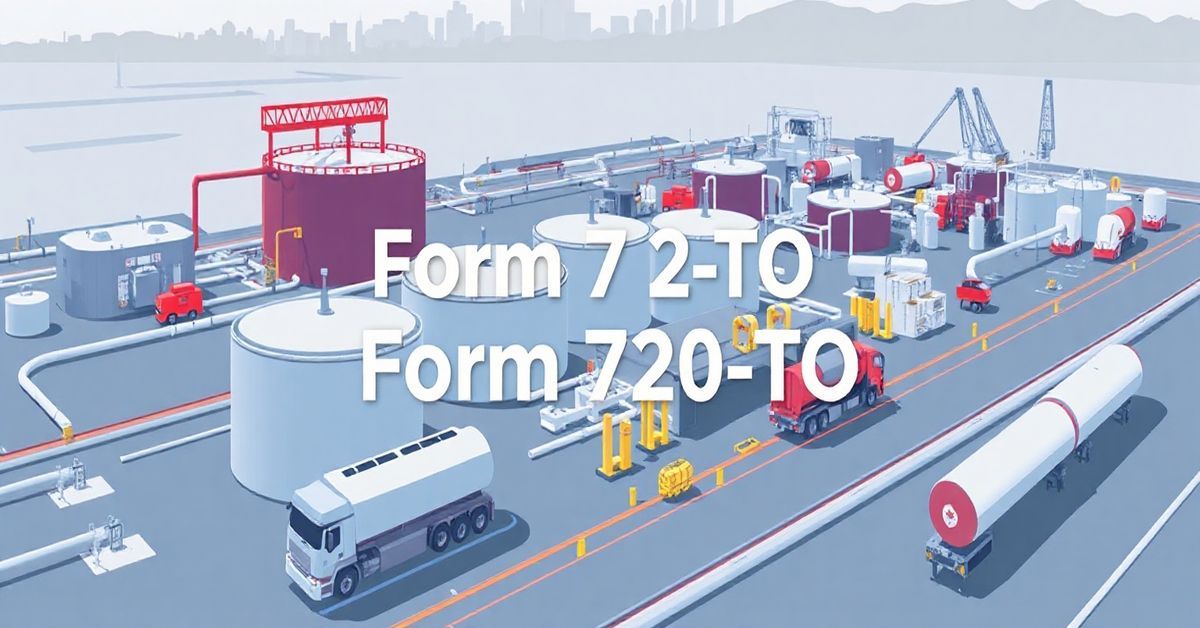Key Concepts Related to Form 720-TO
Taxable Fuel
Remember, Form 720-TO deals with taxable fuels. These are specific types of fuels that are subject to federal excise taxes. Gasoline, diesel, and aviation fuel are some of the most common examples.
Terminal
A terminal is the storage facility we’ve been talking about. It’s a specific location where taxable fuels are stored, and they are the focus of the reporting requirement under Form 720-TO.
Excise Tax
The excise tax is the tax on the fuel. This tax is what Form 720-TO indirectly helps the IRS to collect. This tax is a significant source of revenue for funding transportation projects.

